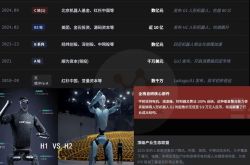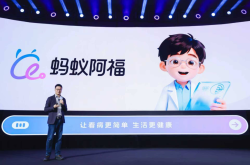Huawei Reveals Three-Year Strategy for Ascend Chips, Introduces In-House Developed HBM
![]() 09/19 2025
09/19 2025
![]() 567
567
Huawei made an announcement today, stating its intention to produce its own 'memory' solution, which is currently in high demand but short supply for AI training. The company plans to launch four new chips over the next three years, with annual updates, culminating in a significant breakthrough in 2028.
On September 18th, at the Shanghai Huawei Connect conference, Huawei's Rotating Chairman, Xu Zhijun, unveiled the roadmap for 'Huawei Ascend Chips' and the Super Node Plan for the first time.
Xu Zhijun outlined a 'three-year, four-chip' strategy: 950PR → 950DT → 960 → 970. With the exception of the first chip, which is set to debut in the first quarter of 2026, the remaining chips will be launched in the fourth quarter of each year. This approach is reminiscent of Apple's annual iPhone releases, aiming to make AI chips a yearly highlight, with all chips expected to be in place by 2028.
According to the presentation slides shown at the event, the Ascend 950PR will make its debut featuring HiBL 1.0, achieving an inference bandwidth of 2TB/s, which represents a threefold increase compared to the current 910C.
The following 950DT will incorporate HiZQ 2.0, excelling in both training and decoding capabilities.
The 960 and 970 chips will continue to push the boundaries of computing power, with the 970 reaching an impressive 8PFLOPS under FP8 precision, equivalent to integrating the power of eight A100 chips into a single unit.
The highlight of the announcement is the introduction of Huawei's in-house developed HBM. Previously, domestic AI chips faced limitations due to the dominance of high-bandwidth memory in the market, primarily controlled by Samsung and SK Hynix. Huawei's simultaneous launch of HiBL/HiZQ versions demonstrates its full readiness across packaging, TSV, controllers, and testing chains.
To offset the limitations of single-card performance, Huawei is expanding its cluster capabilities. This quarter, the company will introduce the Atlas 950 SuperPoD, combining 8,192 cards to form an 'AI supercomputer'. In 2027, it plans to launch the Atlas 960 SuperPoD with 15,488 cards, further enhancing computing power through system-level interconnection.
Xu Zhijun acknowledged on-site that sanctions remain in place, and single-chip performance still trails behind international leaders. 'We're enhancing computing power through system-level innovation,' he stated. This suggests that Ascend is no longer pursuing single-card dominance but is instead relying on a combination of self-developed HBM, Super Nodes, and cluster software to elevate the domestic AI infrastructure.
Some attendees at the event estimated that, following Huawei's release schedule, chip performance could increase eightfold over the next three years. Although pricing details have not been disclosed, Xu Zhijun's mention of 'sustainable and abundant computing power' has sparked anticipation among partners. After all, Huawei's fixed timeline and emphasis on supply stability offer a reassuring prospect for the sensitive market.
With a three-year countdown underway, from memory advancements to system-level innovations, the world eagerly awaits Huawei's responses.







